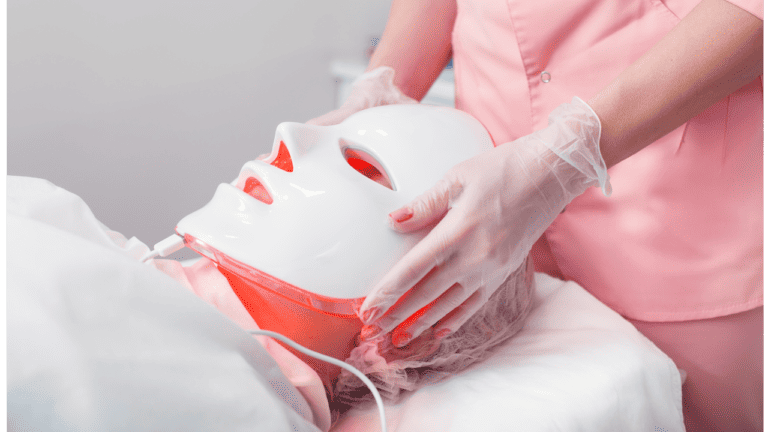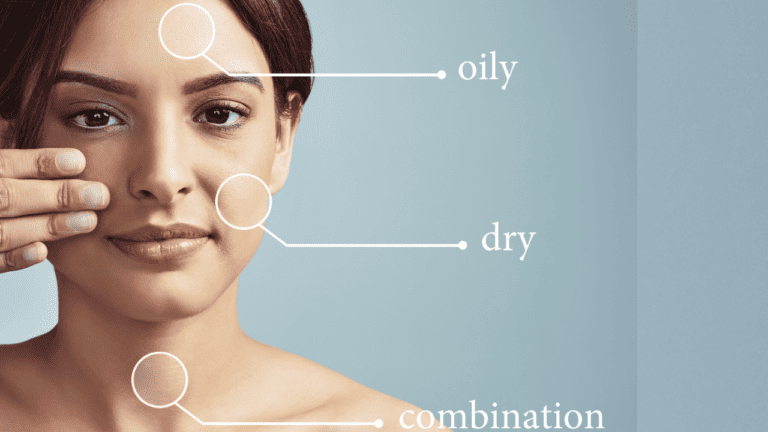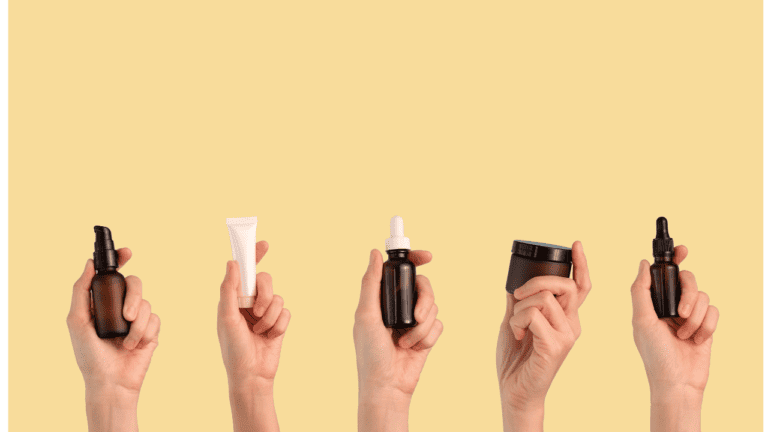Skincare is a crucial aspect of personal grooming, and it is essential to understand that there are differences in the way men and women approach it. While on social media we see women taking the lead in skincare more often, skincare is just as important for men and they have been taking a more active approach to it recently. However, there are biological differences between male and female skin that make it necessary to approach skincare differently.

The biological differences between male and female skin are significant. Men have skin that is approximately 25% thicker than women, with more collagen and elastin fibers.
This difference in skin composition makes men’s skin firmer and more resistant to aging. On the other hand, women’s skin is more sensitive due to hormonal fluctuations, making it more prone to irritation and allergic reactions. Understanding these differences is crucial when developing skincare routines and choosing products.
Key Takeaways
- Biological differences between male and female skin make it necessary to approach skincare differently.
- Men’s skin is thicker and firmer, while women’s skin is more sensitive and prone to irritation.
- Skincare routine variations, product formulation, and marketing, and lifestyle and environmental factors also affect skincare for men and women.
Biological Skin Differences Between Genders

The differences between men’s and women’s skin are not only limited to the obvious external factors such as hair growth and texture. There are also biological differences that affect the skin’s structure and function.
Hormonal Influences on Skin
Hormones play a significant role in the development and maintenance of skin health. Androgens, such as testosterone, are present in higher levels in men than in women, and this affects the skin’s structure and function. Androgens stimulate the sebaceous glands, leading to increased sebum production, which can often result in acne and oily skin. Women, on the other hand, experience hormonal fluctuations throughout their menstrual cycle, which can affect their skin’s oil production and lead to breakouts.
For women, estrogen which is responsible for maintaining collagen levels in the skin decreases as they age. As estrogen levels decrease, collagen production also unfortunately decreases when it is essential for skin elasticity and firmness. This leads to wrinkles and sagging skin.
Structural and Functional Skin Variations
Men have thicker skin than women, and they also have a higher collagen content. The increased collagen content makes men’s skin firmer and more resistant to wrinkles. Women’s skin, on the other hand, is more delicate and prone to wrinkles due to its lower collagen content.
Men’s skin also has a higher density of hair follicles and larger sebaceous glands, resulting in more significant sebum production. This increased sebum production can lead to acne and oily skin. Women’s skin, on the other hand, has a more delicate balance of oil and moisture, making it more prone to dryness and sensitivity.
In conclusion, biological differences between genders can significantly impact skin health. Understanding these differences can help individuals choose skincare products that are tailored to their specific needs.
Skincare Routine Variations

When it comes to skincare routines, men and women have different needs and preferences. Here are some of the variations between the two genders.
Cleansing and Moisturizing Needs
Women tend to have more delicate skin and require gentler cleansers. They also tend to have a more extensive skincare routine, including the use of toners and serums. On the other hand, men’s skin is thicker and oilier, so they need stronger cleansers to remove dirt and oil. Men also tend to prefer multi-functional products, such as a moisturizer with SPF, to simplify their routine.
Both men and women need to moisturize their skin regularly, but they have different needs. Women need to hydrate their skin to maintain its elasticity and prevent fine lines and wrinkles. Men, on the other hand, need to moisturize to prevent razor burn and ingrown hairs.
Shaving and Post-Shave Care
Shaving is a crucial part of men’s skincare routine, and it requires specific products and techniques. Men need to use a sharp razor and shaving cream to prevent irritation and ingrown hairs. After shaving, men should use an aftershave lotion or balm to soothe the skin and prevent razor burn.
Women, on the other hand, may need to remove hair from various parts of their body, but they don’t shave their faces. Instead, they use waxing, threading, or depilatory creams. After hair removal, women need to moisturize their skin to prevent irritation and ingrown hairs.
Targeted Treatments and Aging
As people age, their skin changes, and they need to adjust their skincare routine accordingly. Women tend to notice signs of aging, such as fine lines and wrinkles, earlier than men. They may use targeted treatments, such as retinol or vitamin C serum, to address these concerns.
Men, on the other hand, may need to address other skincare concerns, such as acne or sun damage. They may use products with salicylic acid or benzoyl peroxide to treat acne or use a moisturizer with SPF to protect their skin from the sun.
In conclusion, men and women have different skincare needs and preferences. Understanding these differences can help individuals develop a skincare routine that suits their needs and keeps their skin healthy and youthful-looking.
Product Formulation and Marketing

Gender-Specific Ingredients and Packaging
When it comes to skincare products, there are some key differences between what is marketed towards women and what is marketed towards men, particularly the ingredients are very different.
Women’s skincare products are often formulated with ingredients that are specific to their needs, such as antioxidants, retinol, and hyaluronic acid. These specifically help to combat the signs of aging and keep skin looking youthful. Men’s skincare products, on the other hand, are often formulated with ingredients that are geared towards their specific skin concerns, such as oiliness and acne.
In addition to the ingredients used in the formulations, the packaging of skincare products is often gender-specific as well. Women’s skincare products tend to have more feminine packaging, with soft colors and floral or fruity scents. Men’s skincare products, on the other hand, often have more masculine packaging, with darker colors and more earthy or musky scents.
Fragrance and Product Appeal
Fragrance is another area where there are differences between men’s and women’s skincare products. Women’s skincare products are often heavily scented, with fragrances that are designed to appeal to their sense of smell. Men’s skincare products, on the other hand, are often marketed as being fragrance-free or having a more subtle scent.
The way that skincare products are marketed also plays a role in their appeal to men and women. Women’s skincare products are often marketed with images of youthful, radiant skin and promises of anti-aging benefits. Men’s skincare products, on the other hand, are often marketed with images of rugged, masculine men and promises of clear, healthy-looking skin.
Overall, there are significant differences in the formulation and marketing of skincare products for men and women. From the ingredients used in the formulations to the packaging and fragrance, these differences reflect the unique needs and preferences of each gender.
Lifestyle and Environmental Factors

Both men and women have different lifestyles and environmental factors that can impact their skin health and appearance. In this section, we will discuss some of these factors and how they can affect the skin.
Sun Exposure and Protection
Sun exposure is one of the biggest environmental factors that can affect the skin. Both men and women are exposed to the sun’s harmful UV rays, but men tend to spend more time outdoors and engage in activities that increase their sun exposure, such as sports or manual labor. This increased sun exposure can lead to skin damage, premature aging, and an increased risk of skin cancer.
To protect the skin from the sun’s harmful UV rays, both men and women should use sunscreen with an SPF of at least 30. They should also wear protective clothing, such as hats and long-sleeved shirts, and avoid being outdoors during peak sun hours.
Diet, Stress, and Skin Health
Diet and stress can also play a role in skin health. A diet high in processed foods and sugar can lead to inflammation, which can cause acne and other skin problems. Stress can also lead to inflammation and cause skin problems, such as eczema and psoriasis.
To maintain healthy skin, both men and women should eat a diet rich in fruits, vegetables, and whole grains. They should also manage their stress levels through activities such as exercise, meditation, or yoga.
In conclusion, both men and women have different lifestyles and environmental factors that can impact their skin health and appearance. By protecting their skin from the sun’s harmful UV rays and maintaining a healthy diet and stress levels, they can improve their skin health and maintain a youthful appearance.
Frequently Asked Questions
What are the key differences in skin structure between men and women?
Men and women have different skin structures, which can affect their skin’s appearance and how it responds to various skincare products. Men’s skin is typically thicker and has more collagen and elastin fibers than women’s skin. Women’s skin, on the other hand, is thinner and more prone to wrinkles and sagging. Men also have more sebaceous glands, which can make their skin oilier and more prone to acne.
How do men’s skincare needs differ from those of women?
Men and women have different skincare needs, which is why many skincare products are formulated specifically for men or women. Men’s skin tends to be oilier and more prone to acne, so they may need products that help control oil production and prevent breakouts. Men’s skin is also more prone to irritation from shaving, so they may need products that soothe and hydrate the skin after shaving.
Can men and women benefit equally from using unisex skincare products?
While men and women have different skin structures and skincare needs, many skincare products are formulated to be unisex and can benefit both genders equally. For example, products that contain antioxidants, such as vitamin C or green tea extract, can help protect the skin from damage caused by environmental factors like pollution and UV rays. Hydrating products like moisturizers and serums can also benefit both men and women, as they help to keep the skin soft, smooth, and hydrated. However, it’s important to choose products that are appropriate for your skin type and concerns, regardless of whether they are marketed towards men or women.






